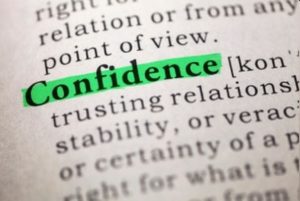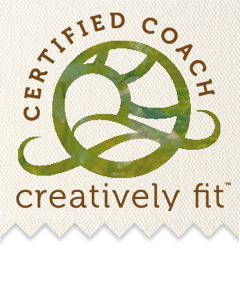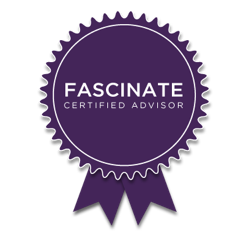
I had just graduated from Stanford with Honors, gotten a MBA in Finance and Accounting with a minor in Organizational Behavior from UCLA, and received job offers from my two dream companies. IBM got to me first, and I was extremely happy to be the first female in my family to graduate from college, and get hired by a major, prestigious corporation.
When I got there, I was a fish out of water. I had had no role models, no mentors, no street smarts, no brothers, and a Dad who had travelled for work most of the time. Even though I had a Mom and a Dad who did everything they could to encourage me to do what is now called leaning in, I didn’t have the confidence to insure I wouldn’t fall over when I got there. The hard work that got me through school had not prepared me for a high tech, primarily male, work environment.
I realized I needed to figure out how to fit into this foreign culture. I was part of a wave of new hires selected for their credentials but the people I worked with didn’t seem to be impressed. In fact, some seemed to resent it. Reading the sports pages and participating in the football pools seemed to be more valuable in meeting my male colleagues and making friends than just “doing my job.” Someone recommended I read Games Mother Never Taught You to understand how males and females operate differently. I needed help on all fronts so I took advantage of internal educational opportunities, too. The convergence of these two strategies – learning about and integrating into the culture plus learning about the business – worked well.
One day I attended an internal class featuring the male Director of Finance. It was the first time I had heard anyone talking about something I could relate to from my finance MBA education. I asked a few questions and thereafter, he recognized me. I made no effort to cultivate the relationship or promote myself to him. A few months later, I was called into my male manager’s office and told that I had been asked to interview for a plum job reporting to the Director of Finance, an opportunity that typically came up only for more experienced people. My manager told me I should feel honored to even be asked to interview for the position and that I probably wouldn’t get it. That ticked me off and I decided I was going to nail the interview and get the job.
Thanks to Games Mother Never Taught You, I learned that women typically look at their qualifications differently than men do. Women tend to think they need to have all the qualifications in the job description (which, if they don’t, reduces confidence in the interview), and men think they need to have some of the qualifications, and assume that this is sufficient at first, and then they’ll figure it out as they go along.
I don’t remember all the details, but I do remember the experience of walking into the interview determined to convey my value, commitment, and confidence that I could do the job, knowing that if I was selected, I would be successful in the position because I would do whatever I needed to do to be productive and effective. I would learn what I needed to learn, and do what I needed to do. I would jump in, get to know people, become part of the team, make mistakes, take responsibility for them, correct them, and move forward. I would lean in, fall down sometimes, pick myself up, and keep at it, even though I may feel fearful at the time.
Fast forward a few decades, to a couple of years ago. I came across an article in Atlantic Monthly titled The Confidence Gap. It said: “Evidence shows that women are less self-assured than men—and that to succeed, confidence matters as much as competence. Here’s why and what to do about it.” I was surprised that this article covered the same type of research that I had learned three decades before in Games Mother Never Taught You!
What the heck is going on here? Why has this “confidence” issue persisted for decades? Why haven’t we moved beyond the gender confidence gap despite the research, the articles, the books, and the panels about it at conferences?
I’m convinced that we should have a different conversation, and go beyond gender. The real issue is how we think about confidence and how we act on that at an individual level. There has been too much comparing and too little introspection. It’s time to toss conventional wisdom and look at “confidence” in a more fundamental way, one that is dynamic and very personal.
dictionary.com defines “confidence” as “full trust; belief in the powers, trustworthiness, or reliability of a person or thing.” In the Information Age (when I was in corporate), this was based on pedigree (specific degrees from certain colleges and universities); specific job experiences (from certain industries or types of companies); and, as the business environment got more complex due to globalization, specific “competencies,” the general ability to do something successfully or efficiently. If you met the established criteria, you and those hiring you could be “confident” that you could do the job. That was the conventional wisdom. Companies looked for people who could do things predictably, even perfectly.
The Information Age criteria and conventional wisdom are insufficient if not irrelevant in the current environment, sometimes referred to as the Digital Age. The Digital “Age” is characterized by unprecedented complexity in terms of speed, scale, and scope of change. Some use the acronym VUCA to describe it – volatile, uncertain, chaotic, and ambiguous – an acronym used by the military to describe battleground conditions!
In these increasingly complex times, experiences and skills become obsolete quickly, so companies are looking for people who can figure things out, people who are independent thinkers, committed, collaborative, not afraid to take risks, who question the status quo, are self-motivated, curious, and “damn confident.” That is, they are looking for skilled creatives.
The qualities of creative potential are not acquired in the classroom; paying attention to them brings them out. The good news is that everyone has this potential. The bad news is that most people aren’t aware of it.
Confidence is a capability that comes from paying attention to, exploring, and developing your own creative potential, by having a personal purpose and vision, knowing your capabilities and what you are committed to, choosing to persevere in the face of fear and criticism, acquiring the skills to meet the challenges you want to take on in your personal and professional life, and believing in your creative potential and the creative potential of those you want to lead.
Get acquainted with your creative potential and develop it so you believe in your ability to do the job at hand, and develop the confidence that you can “figure things out,” over and over again. It is a potential that you, and only you, can bring out. Gender has nothing to do with this.
To learn more, contact CLUE Institute
www.clueinstitute.com susan.jamison@clueinstitute.com.
408-399-8883 land or 650-291-2706 mobile
 You Choose: Creativity or Commodity?
You Choose: Creativity or Commodity? The Need for Creativity Warriors
The Need for Creativity Warriors



Leave a Reply